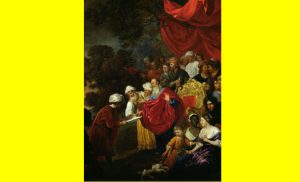Jerusalem Conquered by Lope de Vega-A Review
Jerusalem Conquered by Lope de Vega-A Review
Jerusalem Conquered by Lope de Vega-A Review
“Jerusalem Conquered” (La Jerusalén Conquistada) is an epic masterpiece penned by the renowned Spanish playwright and poet, Lope de Vega. Set against the backdrop of the First Crusade, the work delves into the captivating narrative of the siege and ultimate conquest of Jerusalem. Lope de Vega’s expert blend of historical accuracy, poetic prowess, and thematic depth makes this epic a timeless exploration of human conflict, valor, and religious fervor.
Plot and Historical Context:
Lope de Vega masterfully weaves together history and art in “Jerusalem Conquered.” The epic centers on the dramatic events surrounding the First Crusade, offering readers a comprehensive understanding of the political, religious, and emotional motivations that drove both the Christian and Muslim forces. The poet’s meticulous attention to historical detail, while infusing the narrative with poetic embellishments, creates a vivid tapestry of the medieval world.
Characters:
The characters in “Jerusalem Conquered” are both archetypal and multidimensional. Lope de Vega provides readers with a diverse array of characters, each representing different facets of the era’s complex social and religious landscape. From the fervent Christian crusaders to the stalwart defenders of Jerusalem, the characters are vehicles through which the epic’s themes of faith, bravery, and cultural clash are explored.
Themes:
The epic delves deeply into several overarching themes that resonate throughout the narrative:
Religious Zeal: The clash of faiths between Christianity and Islam is a central theme. Lope de Vega delves into the religious fervor that fuels the crusaders and the devout defenders of Jerusalem, showcasing how faith can be a powerful driving force in history.
Humanity in Conflict: The epic does not shy away from depicting the brutality of war and conquest. It presents the raw emotions, moral dilemmas, and personal sacrifices made by individuals on both sides of the conflict, emphasizing the human experiences that transcend cultural and religious differences.
Power and Dominion: The struggle for control over Jerusalem highlights the thirst for power and dominion that drives political and military actions. The epic explores the intricate web of alliances, betrayals, and strategic maneuvers that shape historical events.
Poetic Style and Language:
Lope de Vega’s poetic brilliance shines throughout “Jerusalem Conquered.” His use of vivid imagery, metaphors, and allegorical elements heightens the emotional impact of the narrative. The epic employs a variety of poetic forms, including sonnets, tercets, and quatrains, showcasing Lope de Vega’s versatility and mastery of poetic techniques.
Emotional Resonance:
What truly sets “Jerusalem Conquered” apart is its ability to evoke a wide range of emotions in its readers. The epic’s portrayal of love, valor, tragedy, and sacrifice creates an emotional connection that transcends time. Whether it’s the sorrow of loss, the triumph of victory, or the anguish of ethical dilemmas, the epic’s emotional depth resonates profoundly.
Conclusion:
“Jerusalem Conquered” is a literary tour de force that captivates readers with its gripping historical narrative, complex characters, and profound thematic explorations. Lope de Vega’s poetic brilliance transforms this epic into an enduring masterpiece that not only entertains but also educates and enlightens. This work stands as a testament to the enduring power of literature to illuminate the depths of human experience, even in the midst of the most tumultuous historical events. 0 0 0.
Jerusalem Conquered by Lope de Vega-A Review
N.B. The article originally belongs to the book entitled ‘The Reviews of Epic Literature Around the World‘ by Menonim Menonimus.
You May Like:








